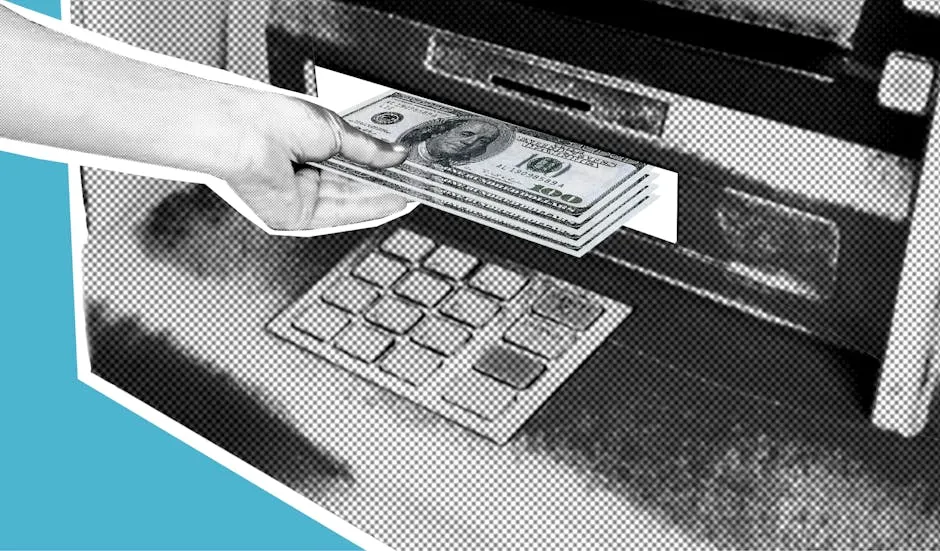
Why is Personal Finance Dependent Upon Your Behavior?
Introduction
Personal finance is crucial for achieving financial stability and security. It’s not just about numbers; it’s about your actions. Your financial behavior greatly influences your success in managing money. This article will examine how your habits and choices shape your personal finance decisions.
To kickstart your journey to financial wellness, consider using a Budget Planner Notebook. This handy tool helps organize your finances, ensuring you stay on track with your spending and saving goals.
Summary and Overview
Understanding the connection between behavior and personal finance is essential. Psychological factors, such as emotions and cognitive biases, shape financial habits. For instance, how you respond to stress can lead to impulse buying, affecting your overall savings. Recognizing your financial behavior allows you to make informed decisions and work toward your financial goals. By improving your financial habits, you can enhance your ability to save, invest, and manage debt effectively. This understanding is vital for long-term financial success.

Understanding how your behavior impacts your financial decisions is essential for personal finance. why is personal finance dependent upon your behavior
Understanding the Relationship Between Behavior and Personal Finance
The Role of Psychology in Financial Decisions
Psychology plays a significant role in how we manage money. Our emotions often guide our financial choices, leading to both positive and negative outcomes. For instance, when we feel stressed or anxious, we might resort to emotional spending to cope. This can result in impulsive purchases that derail our financial plans.
Impulse buying contrasts sharply with planned spending. When you think ahead and budget, you’re less likely to fall prey to fleeting desires. Studies show that nearly 60% of people admit to making unplanned purchases regularly, indicating the strong influence of emotions on spending.
Financial socialization also shapes our habits. The lessons we learn from family and friends can set the stage for our financial behavior. For example, if you grew up in a household that emphasized saving, you’re more likely to adopt similar habits. Conversely, if spending was the norm, you might struggle with saving.
Take a moment to reflect: how do your emotions influence your financial decisions? Understanding this can help you identify areas for improvement. By recognizing the psychological aspects of your spending and saving habits, you can create a more stable financial future.

To help manage those emotional triggers, consider using an Impulse Purchase Tracker. This tool will help you keep an eye on those spontaneous buys and assist you in making wiser choices.
Common Behaviors that Lead to Financial Struggles
Overspending and Impulse Buying
Many people struggle with overspending, often fueled by emotional triggers. When you feel stressed, happy, or even bored, the urge to shop can become overwhelming. Retail therapy might seem satisfying at the moment, but it often leads to buyer’s remorse later. Those impulsive purchases can quickly add up, leaving you with regret and a depleted bank account.
The consequences of these impulsive financial decisions can be severe. They may result in debt, financial insecurity, and an inability to save for important goals. When you fail to manage your spending habits, you risk sacrificing your long-term financial health. Learning to recognize these emotional triggers is crucial for regaining control over your finances. By implementing strategies like waiting 24 hours before making a purchase, you can reduce impulse buying and make more informed financial choices.

If you’re serious about tackling your spending habits, a Debt Repayment Calculator can be a game-changer. It will help you strategize your repayments and keep those financial worries at bay.
Failing to Budget and Track Expenses
Budgeting is a fundamental part of healthy financial management. Without a clear budget, it’s easy to lose sight of where your money goes each month. Tracking expenses can reveal patterns you might not even be aware of, such as recurring subscriptions or unnecessary dining out. This awareness helps you identify areas to cut back and prioritize savings.
Neglecting to budget can lead to financial uncertainty. You may find yourself living paycheck to paycheck, with little to no savings for emergencies. Over time, this can create unnecessary stress and limit your financial freedom. Taking the time to establish a realistic budget and regularly reviewing it will help you stay on track and make informed decisions about your money.

To assist with budgeting, consider a Household Expense Tracker. This handy tool can help you keep tabs on where your money is going, making budgeting less of a chore and more of a breeze!
Ignoring Debt and Credit Scores
Debt management is critical in personal finance. Ignoring your debts can lead to higher interest rates and a lower credit score, impacting your financial future. When debts pile up, they can feel overwhelming, but avoiding them only exacerbates the situation. Understanding your debt obligations and creating a plan to tackle them is essential for regaining control.
Your credit score plays a significant role in many financial decisions, including loan approvals and interest rates. By neglecting this aspect, you risk facing obstacles in securing favorable terms on future loans or credit. Regularly monitoring your credit score and addressing any issues can save you money in the long run. Establishing a proactive approach to debt management will set you on a path toward improved financial health and stability.

Consider investing in a Credit Score Monitoring Device. It helps you keep an eye on your credit health, enabling you to make informed financial decisions.
Strategies for Overcoming Negative Financial Behaviors
Developing Positive Financial Habits
Improving your financial behavior starts with actionable steps. Here are a few strategies to help you on your journey.
First, set realistic financial goals. Break them down into manageable milestones. This keeps you motivated and focused. For instance, rather than aiming to save $5,000 immediately, target $500 per month. Celebrate small wins to build momentum.
Second, automate your savings and bills. By setting up automatic transfers to your savings account, you ensure you’re consistently saving. This approach reduces the temptation to spend. Research shows that people who automate their savings are 30% more likely to reach their financial goals.

Additionally, you might want to look into online resources like Online Personal Finance Courses. These courses can provide you with essential knowledge and skills to manage your finances more effectively.
Self-awareness is vital for overcoming negative behaviors. Reflect on your spending habits and triggers. By understanding your financial tendencies, you can make informed decisions.
Ready to take control of your finances? Start a budgeting plan today!

The Role of Financial Education
Importance of Financial Literacy
Financial education significantly impacts your financial behavior. Knowledge equips you to make informed decisions about spending, saving, and investing. When you understand financial concepts, you’re less likely to be swayed by impulsive emotions.
For example, knowing about compound interest encourages saving early. This knowledge helps you appreciate the long-term benefits of setting aside money regularly. Furthermore, financial literacy reduces anxiety around money matters, leading to more confident decision-making.
Studies show that individuals who receive financial education are 50% more likely to create budgets and stick to them. This proactive approach fosters a sense of control over personal finances.
Additionally, understanding common financial pitfalls can help you avoid costly mistakes. Financial literacy empowers you to navigate complex products and services. Ultimately, it encourages a healthier relationship with money, paving the way for financial success.

Behavioral Economics Insights
Behavioral economics combines psychology and economics. It examines how psychological factors influence our financial decisions. Understanding this helps us see why we make certain choices about money. For example, cognitive biases often lead us astray. These biases include overconfidence, where we believe we know more than we do. This can result in poor investment choices.
Another common bias is loss aversion. This is our tendency to fear losses more than we value gains. It makes us overly cautious, leading to missed opportunities. Emotional spending is also a major issue. When we feel stressed or happy, we may spend impulsively, thinking it will improve our mood.
Recognizing these biases is the first step to better financial behavior. By understanding how our minds work, we can make smarter financial decisions. This awareness empowers us to manage our money effectively and achieve our financial goals.

Practical Tips for Improving Financial Behavior
Creating a Budget
Creating a budget is a vital step in managing your finances. Start by listing your income and expenses. Include all sources of income, like your salary and side gigs. Then, categorize your expenses into fixed and variable costs. Fixed costs include rent or mortgage, while variable costs cover groceries and entertainment.
Once you have this information, allocate your income to different categories. Aim to spend less than you earn. This helps you save for emergencies and future goals. Stick to your budget by monitoring your spending closely. Use apps or spreadsheets to track your expenses and adjust as necessary.

Sticking to a budget offers numerous benefits. It promotes financial discipline and helps prevent overspending. Moreover, having a clear financial plan reduces stress. You’ll feel more in control of your money, paving the way for better financial decisions.
If you want to keep your budget visually appealing and organized, consider investing in a Desk Organizer. This can help you maintain focus and clarity while working on your budget.
Automating Savings
Automating your savings can significantly simplify your financial life. This strategy involves setting up automatic transfers from your checking account to your savings account. By doing this, you ensure you’re consistently saving each month without even thinking about it.
To get started, review your income and expenses. Decide on a specific amount to save each month. Then, set up an automatic transfer through your bank. This way, the money moves to savings right after you receive your paycheck.

The advantages of automating savings are clear. It reduces the temptation to spend that money. You’re also less likely to forget to save. Research shows that individuals who automate their savings are more likely to reach their financial goals. By making saving effortless, you can build your financial future without added stress.
While automating savings, consider using a Automatic Savings Account Setup Guide. This guide will help you establish a solid savings plan that works for you.
Implementing the 48-Hour Rule
The 48-hour rule is a simple yet powerful technique to curb impulse purchases. When you feel the urge to buy something non-essential, pause for 48 hours. This waiting period gives you time to reflect on the necessity of the purchase. You may realize that you don’t really need the item after all.
This strategy can significantly improve your financial decision-making. By delaying gratification, you allow your rational mind to take over. Instead of acting on impulse, you consider your budget and long-term goals. Research shows that individuals who practice this rule tend to make more thoughtful decisions about their finances. They become more aware of their spending habits and can better prioritize their financial needs.
Incorporating the 48-hour rule into your routine may help you achieve greater financial control. You’ll find yourself saving more and spending less on unnecessary items.

Tracking Your Progress and Adjusting Your Behavior
Monitoring Financial Progress
Regularly reviewing your financial goals and behaviors is crucial for success. It helps you stay accountable and make necessary adjustments. When you track your progress, you can assess whether your strategies are effective. This self-reflection allows you to identify areas needing improvement.
Consider using tools like budgeting apps or spreadsheets to monitor your finances effectively. These resources can help you visualize your income, expenses, and savings. Establish a routine for checking your financial status, whether weekly or monthly. This consistent practice keeps you engaged with your financial journey.
By monitoring your financial progress, you empower yourself to make informed decisions. You’ll feel more in control of your money, ultimately leading to improved financial health and stability.

If you’re looking for a fun way to engage with your financial education, consider Financial Education Board Games. These games can make learning about finance enjoyable while helping to reinforce key concepts.
Adapting to Life Changes
Significant life events can greatly impact your financial behavior and decision-making. Changes like marriage, parenthood, or job loss require you to reassess your financial strategies. It’s essential to adapt your plans to reflect your new circumstances.
For instance, starting a family may increase expenses. You might need to adjust your budget or savings goals accordingly. Similarly, a job loss may necessitate a reassessment of your spending habits.
Being flexible and open to change is vital for successful financial management. Regularly evaluate your financial strategies in light of your life changes. This proactive approach ensures that you remain on track to achieving your financial goals, even as your circumstances evolve.

Conclusion
In summary, your financial behavior plays a crucial role in your overall financial success. By implementing techniques like the 48-hour rule, monitoring your progress, and adapting to life changes, you can cultivate positive financial habits. These habits lead to better decision-making and improved financial outcomes.
Take actionable steps today to enhance your financial behavior. Start tracking your spending, set realistic goals, and reflect on your choices. Your future financial stability depends on the actions you take now.
FAQs
How does behavior affect personal finance?
Behavior significantly influences personal finance decisions. Emotional responses often drive spending patterns, leading to impulsive purchases. When individuals understand their financial behavior, they can make more informed choices. This awareness helps in creating budgets, saving effectively, and investing wisely. Positive financial behavior fosters improved financial outcomes over time.
What are some common behavioral biases in financial decision-making?
Common behavioral biases include confirmation bias, where individuals seek information that supports their existing beliefs. Loss aversion is another, as people tend to fear losing money more than they appreciate gaining it. Present bias refers to the tendency to prefer immediate rewards over future benefits, leading to impulsive spending and poor financial choices.
How can I develop better saving and budgeting habits?
To improve saving and budgeting habits, start by setting clear financial goals. Create a realistic budget and track your expenses regularly. Automate your savings by setting up automatic transfers to your savings account. Additionally, review your budget frequently to adjust for any changes in your financial situation and ensure you stay on track.
What is the significance of long-term investing?
Long-term investing is crucial for achieving financial goals and building wealth over time. It allows your investments to grow through compound interest. A long-term perspective helps you ride out market fluctuations, reducing the impact of short-term volatility. This approach can lead to more substantial returns and financial security in the future.
How can I modify my behavior to improve my financial outcomes?
To modify your behavior for better financial outcomes, start with self-awareness. Identify emotional triggers that lead to impulsive spending. Set specific, achievable financial goals and create a budget. Consider seeking professional advice to guide your financial strategies. Regularly tracking your progress can also motivate positive behavioral changes.
Please let us know what you think about our content by leaving a comment down below!
Thank you for reading till here 🙂
All images from Pexels




